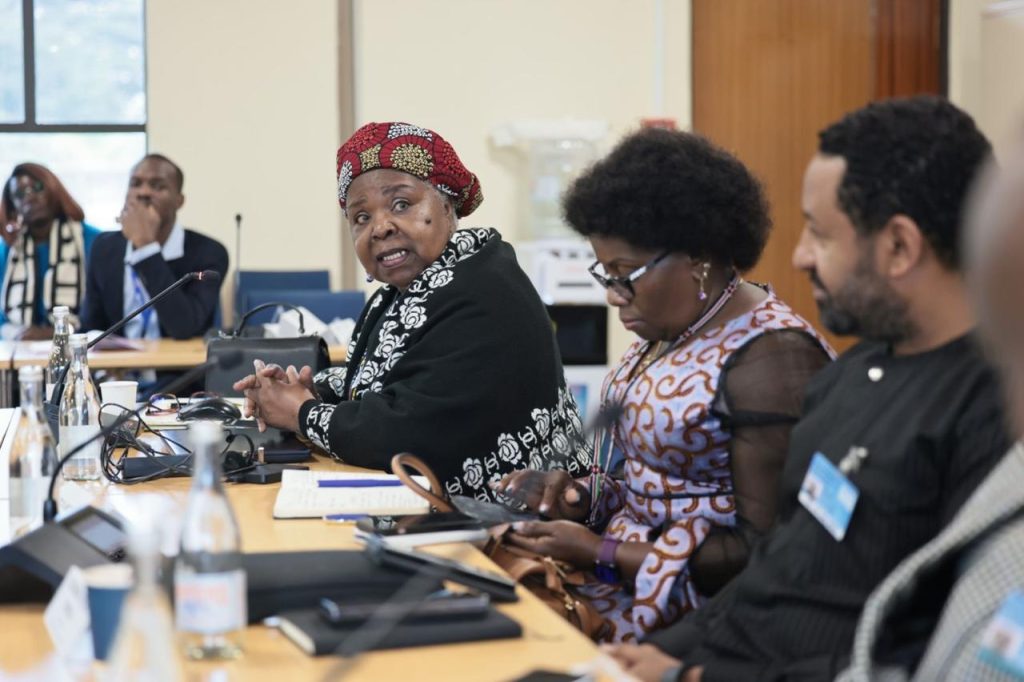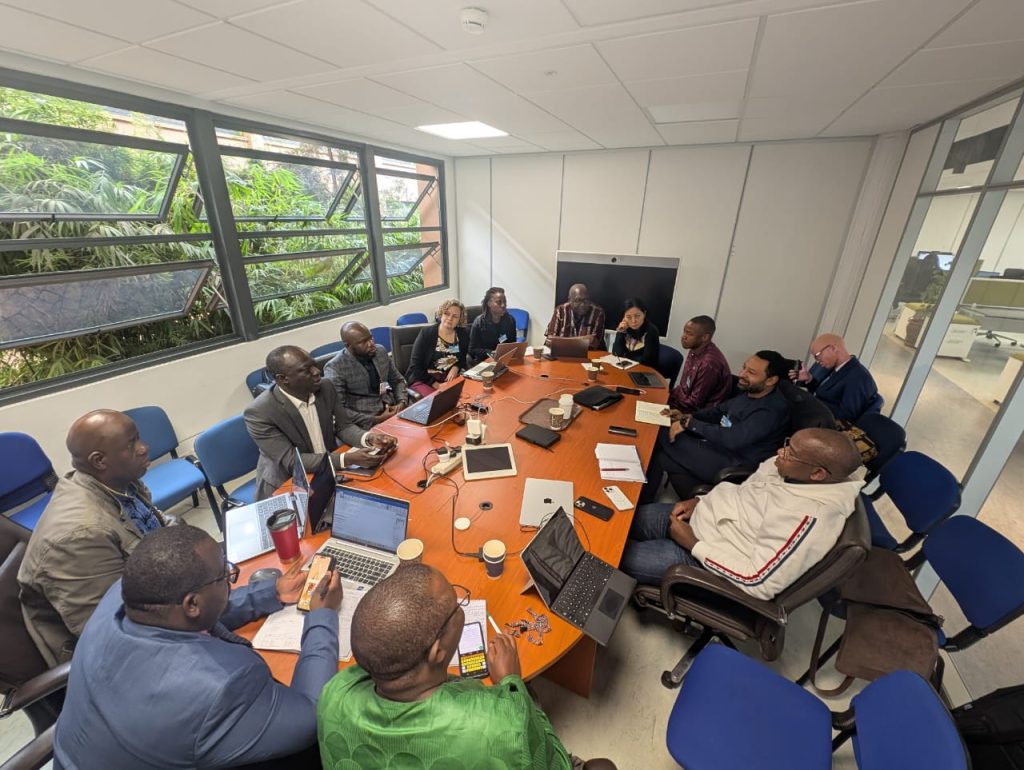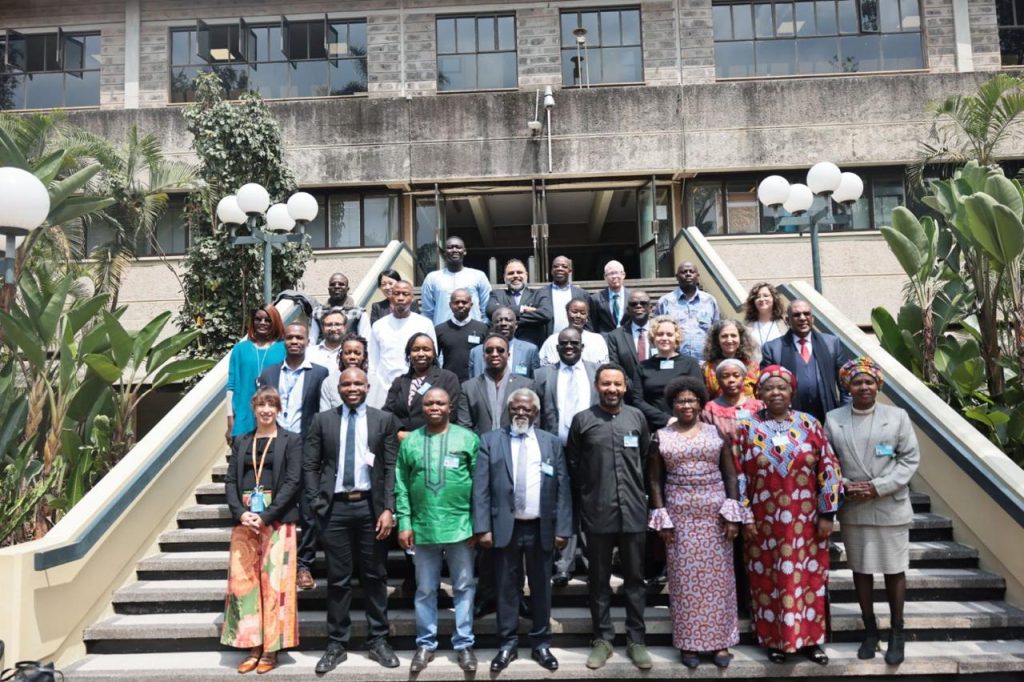Africa has pioneered the recognition of the link between human rights and the environment. The African Charter on Human and Peoples’ Rights is the first regional human rights instrument to have entrenched a legally binding and justiciable right to a generally satisfactory environment. Environmental rights are also enshrined in the Revised African Convention on the Conservation of Nature and Natural Resources of 2003 and the Protocol to the African Charter on Human and Peoples’ Rights on the Rights of Women of 2003.
Regional human rights bodies such as the African Commission on Human and Peoples’ Rights and the African Court on Human and Peoples’ Rights have further clarified and advanced the scope of environmental rights, as well as the rights of Indigenous Peoples in environmental matters, including in the context of environmental conservation efforts.
As of 2025, all 54 African nations have formally recognized the right to a healthy environment in their constitutions, national legislation, and/or by ratifying the African Charter on Human and Peoples’ Rights.
The case for the regional framework
Despite this progress, Africa has yet to develop a comprehensive, dedicated regional instrument on environmental rights. There is growing recognition among African civil society of the need for a regional framework on environmental rights, including the rights of Indigenous Peoples and communities who depend on natural resources for their cultural, spiritual, or material wellbeing.
The Environmental Rights in Africa (ERA) initiative, a coalition of civil society organizations across the continent, has helped build momentum among civil society, experts, and governments to advance environmental rights discussions in Africa. They argue that a comprehensive legal framework for environmental rights across Africa could support:
- legal harmonization,
- cooperation on transboundary environmental issues,
- better governance of natural resources, and
- stronger respect, protection, and promotion of human rights.
During its 83rd Ordinary Session, held from 2-22 May 2025, in Banjul, The Gambia, the African Commission on Human and Peoples’ Rights adopted a resolution aimed at developing a General Comment on the Protection and Promotion of the Right to a Healthy Environment in Africa. Resolution 633 of 2025 mandates the Commission’s Working Group on Extractive Industries, Environment, and Human Rights Violations to prepare this General Comment, which will outline the necessary measures for the respect, promotion, protection, and fulfillment of the right to a healthy environment in collaboration with other stakeholders.
This resolution builds upon the past efforts of the African Commission to expand and define environmental rights in Africa. These efforts include the African Commission’s State Reporting Guidelines and Principles concerning Articles 21 and 24 of the African Charter on Human and Peoples’ Rights, several resolutions addressing the intersection of human rights and the environment, and the Commission’s decisions regarding communications on environmental rights. The normative framework of the African human rights system emphasizes the importance of protecting and promoting environmental rights.
The African Commission’s adoption of this resolution signifies a commitment to addressing environmental rights issues across the continent and to advancing the implementation of UN General Assembly resolution 76/300 at the regional level. Additionally, this initiative aligns with calls from various actors across the continent to strengthen the protection and promotion of environmental rights, including the Environmental Rights in Africa Initiative.

Recent consultations on the environmental rights framework
In July 2025, the United Nations Environment Programme (UNEP), in collaboration with Natural Justice, convened a high-level Expert Consultation Meeting (July 12–13) and a Technical Meeting (July 14) to support the Commission’s process. These events brought together experts from across the continent and beyond—including lawyers, civil society actors, INGO representatives and members of the African Union; including Lady Justice Tujilane Chizumila, judge of the African Court on Human and Peoples Rights, Honourable Commissioner Solomon Dersso and Honourable Commissioner Litha Musyimi Ogana, in their capacities as Chairperson and Deputy Chair of the Working Group on Extractive Industries, Environment and Human Rights Violations.
Over the first two days, stakeholders from across Africa and other regions convened to assess progress, share best practices, and explore opportunities to advance environmental rights on the continent. Discussions examined critical thematic issues related to the intersection of environment and human rights and highlighted a broad range of initiatives, from legal and policy reforms to grassroots movements. These initiatives demonstrate a growing commitment to rights-based environmental governance.
Building on comparative lessons from other regional frameworks, such as the Escazú Agreement and the Aarhus Convention, participants considered the viability of a regional African approach to environmental rights.
While views varied on whether to develop new instruments or strengthen existing mechanisms, there was consensus on the rising threat against environmental defenders in Africa; underscoring the urgent need for protection mechanisms grounded in local realities. Participants emphasized that Africa must avoid a “copy-paste” approach and instead develop environmental rights discourse rooted in the lived experiences of communities and shaped by existing regional frameworks.
A central debate emerged around whether to adopt a new regional environmental rights instrument or build on current legal provisions. Proposals ranged from:
- a protocol to clarify and expand on the African Charter;
- a guiding declaration to assist state responses to violations;
- enhanced use of existing mechanisms on a case-by-case basis;
- revising the Convention on Nature Conservation; or
- developing a comprehensive environmental rights convention to address legal gaps and harmonize standards.
The discussion concluded with a challenge to move beyond legal fixes alone, urging innovative and community-centered solutions to address the environmental and human rights crises facing the continent.
Moving forward
The African Commission’s upcoming General Comment marks a critical opportunity to define and operationalize the right to a healthy environment in Africa. With broad-based support from civil society, regional institutions, and international partners, there is growing momentum to elevate environmental rights as a cornerstone of Africa’s human rights agenda.
The path ahead must be inclusive, context-specific, and action-oriented—guided not only by legal ambition but also by the needs of communities on the frontlines of environmental harm. The time to act is now.

Read more about ERA | ALLIED

